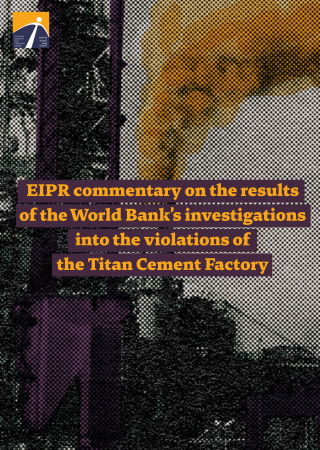Files: Egyptian Constitution
EIPR welcomed the decision of the Zagazig Criminal Court on Wednesday, February 23, 2022 - to release Quranist researcher and blogger Reda Abdel Rahman without bail pending investigations in Kafr Saqr emergency state security misdemeanor N
On Saturday, February 26, 2022, the Administrative Court rejected the lawsuit filed by EIPR against the Minister of Interior and the Head of the Prisons Authority, for their failure to conditionally release prisoner, Mohamed Mohamed Naguib
The second circuit for criminal terrorist offences, held at the Tora police institute on Sunday, March 5, and presided by Judge Moataz Khafaji decided to release Ahmed Muhammad Muhammad Yunus by guarantee of his place of residence in case
February 26, 2022, the Administrative Court of the First Circuit (Liberties) held the first hearing of Case No.
The Egyptian Initiative for Personal Rights (EIPR) issued a comment on the report released lately by the Investigation office of the World Bank Group (CAO) on the complaint against the Alexandria Portland Cement Company (Titan Cement Factory), and the International Finance Corporation ( IFC) , the private sector arm of the world bank Group, which funded the establishment of the company.
The Egyptian Initiative for Personal Rights (EIPR) issued a comment on the report released lately by the Investigatio




